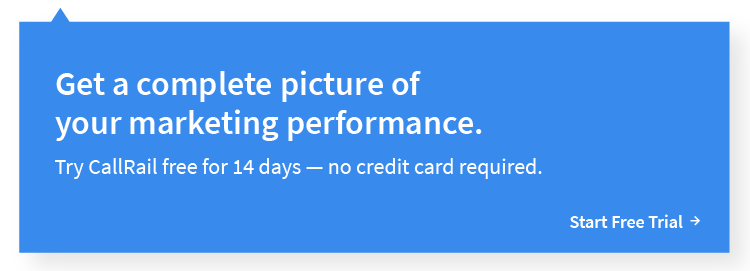Figuring out what to ask on your landing page’s web forms is no easy task. It’s important to gather enough information to qualify your leads, but you also need to keep them engaged. If your lead generation form is too long or complicated, there’s a good chance your website visitors will click away, costing you valuable prospects. It’s essential that your top-of-funnel contact forms include questions to help you qualify leads, while also keeping things concise and to the point.
But knowing what to ask on your contact forms without overwhelming your prospects can be a major challenge. If you’re feeling stuck, read on to learn about what you should be asking on your company’s lead capture forms.
1) What’s your first and last name?
Seems obvious, right? There are important benefits to asking your website visitors to share their full names with you: By asking for each lead’s full name, your marketing and sales team can learn far more about them than they could from a first name alone. When you have your prospects’ full names, your company can Google them or review their social media profiles to assess whether they are viable leads for your company.
Having a lead’s full name also gives you an edge in your email marketing, because it lets you easily personalize all messages you send to them from the very start. And sending personalized messages can give you a major edge over competitors that don’t personalize their messages. In fact, according to research by Campaign Monitor, personalized emails are 26 percent more likely to be opened than non-personalized ones, which can greatly benefit your email marketing campaigns down the road.
2) What’s your email address?
For your lead generation form to do its job, you absolutely need a way to get in contact with potential customers. At the very least, your form should ask your website visitors to enter their email addresses. Once you have a prospect’s email address, you can add them to lead nurturing email campaigns to engage them and encourage them to move down the marketing funnel and into the decision-making process. Email marketing campaigns are an incredibly effective and low-cost way to get your leads interested in what your company has to offer them.
3) What’s your company name and website URL?
Asking your audience to share their company name and website gives your sales team the opportunity to conduct valuable research into the organization. Knowing their company’s name makes it quick and easy for your team to find out what the company does, what they are struggling with, and whether you will be able to help them.
Learning this information at the start will help you determine whether they are promising leads for your company. It’s also a good idea to ask for each lead’s company website URL, which makes it that much easier to qualify them.
4) How many employees does your company have?
Along with knowing the name of the company where a prospect is employed, having a clear picture of how many employees work for that company is another valuable source of information when it comes to qualifying leads. Crucially, knowing the size of a company can give you an indication as to whether they can afford the services you offer.
For example, if you offer pricey cybersecurity software solutions, a small startup would not be your ideal prospect. On the other hand, if your lead is a large company with hundreds of employees, there’s a far greater chance that they will be viable prospects. By determining the number of employees, you can get a sense of whether a company is likely to have the budget for your services, which makes it far easier to decide whether to pursue a lead.
5) What’s your job title and industry?
A lead’s job title and industry are critical information for determining whether they’re a good fit for your company. If your aim is to target decision-makers in upper management, knowing a prospect’s job title upfront can help you ensure you are nurturing a sales-ready lead. (Communicating with the right person from the very start will save you a great deal of time in the long run.)
If your business has a specific area of expertise and buyer persona, knowing a lead’s industry will immediately indicate whether they are a promising prospect for your company. In turn, this information will also help you weed out leads that aren’t part of the industries in which your business specializes.
6) What is your biggest challenge?
It’s no secret that companies need to understand their customers’ pain points in order to effectively present a solution to their problems. Asking your leads about the biggest challenge they face can give you important insights into their pain points, and whether your company can help solve them.
Marketing software giant HubSpot asks prospects to identify their biggest marketing challenge on their forms to see whether a prospect is likely to benefit from their services — knowing a lead’s biggest challenge helps you to understand if they fit into the customer base you’re trying to reach, and your larger business strategy. Armed with this information, you can then determine whether it’s worth your while to spend the time to nurture them further down the sales funnel.
By including these six questions on your form, you can be confident you’re capturing essential lead data that will help you develop more effective and targeted marketing campaigns. Although lead capture forms look different for every business, these guidelines will help you ensure that you’re asking your audience the most relevant questions, no matter your industry. With these questions as a baseline, you’ll gain insights that will help you qualify and nurture better leads for your company not just for the next campaign, but for the long-haul.
The post The 6 questions you should be asking on your lead generation forms appeared first on CallRail.

